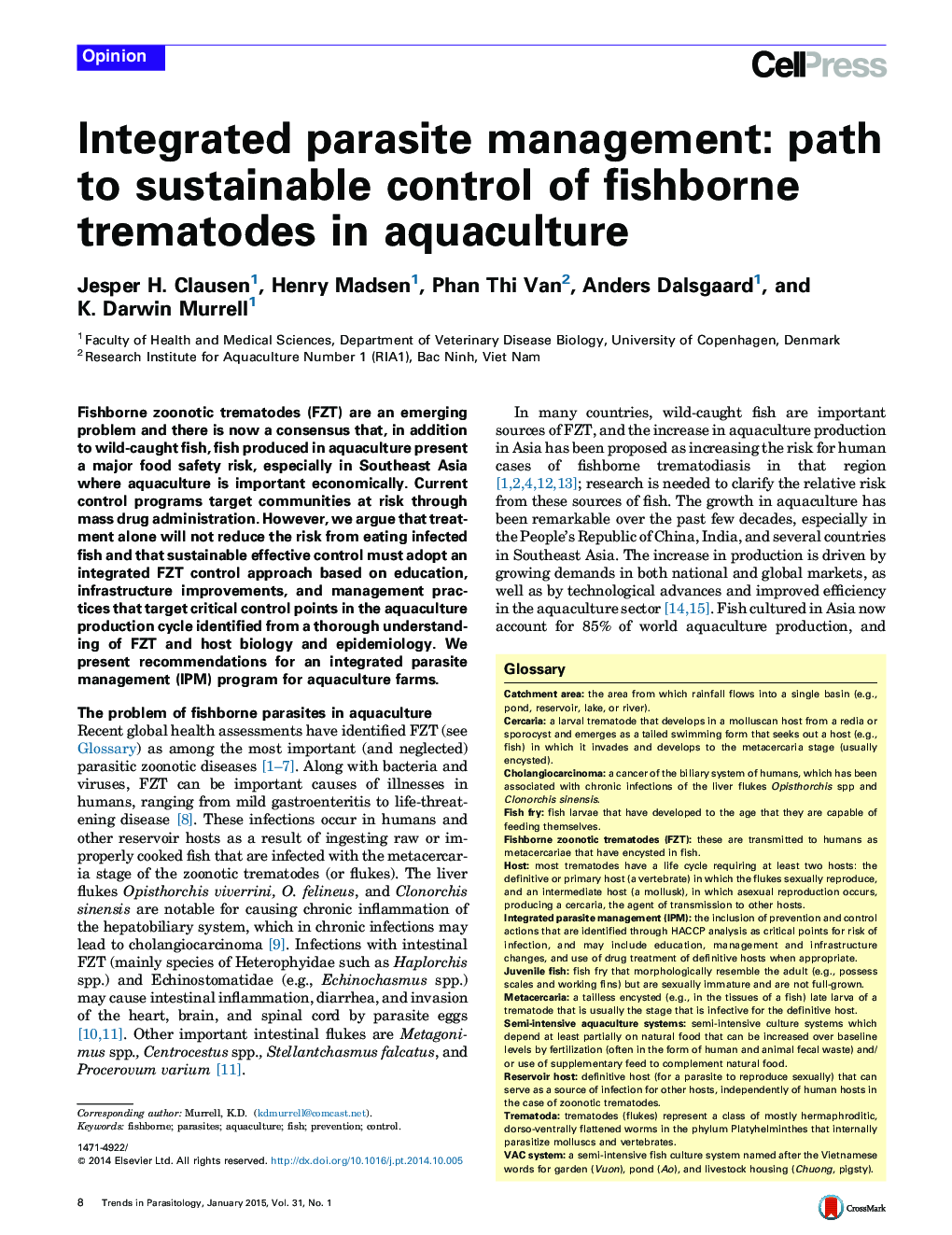| Article ID | Journal | Published Year | Pages | File Type |
|---|---|---|---|---|
| 3423054 | Trends in Parasitology | 2015 | 8 Pages |
•We review the current problem of fishborne zoonotic trematodes (FZT) in aquaculture and the current state of control strategies.•Community-wide drug treatment for fishborne infections cannot reduce the health risk of consuming farmed fish.•We present a HACCP approach that identifies the critical control points in fish farming and should guide control interventions.•An integrated management approach was found to significantly reduce fish FZT and the health risk of fish consumption.•This integrated management approach is practical and sustainable for fish farmers.•Research and technology advances needed for optimization of control are presented.
Fishborne zoonotic trematodes (FZT) are an emerging problem and there is now a consensus that, in addition to wild-caught fish, fish produced in aquaculture present a major food safety risk, especially in Southeast Asia where aquaculture is important economically. Current control programs target communities at risk through mass drug administration. However, we argue that treatment alone will not reduce the risk from eating infected fish and that sustainable effective control must adopt an integrated FZT control approach based on education, infrastructure improvements, and management practices that target critical control points in the aquaculture production cycle identified from a thorough understanding of FZT and host biology and epidemiology. We present recommendations for an integrated parasite management (IPM) program for aquaculture farms.
